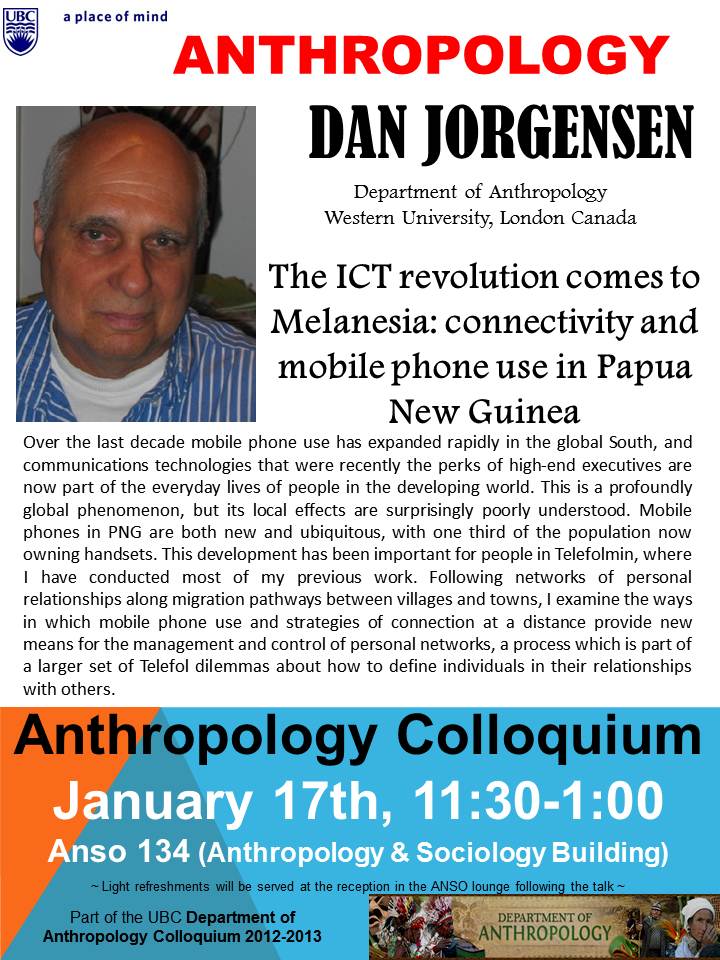Anthropology Colloquium is the department’s speaker series that invites a mixture of anthropologists from within and outside of UBC to present their research. This speaker series is scheduled throughout the academic year, typically with a lunch reception in the AnSo Lounge.
The ICT revolution comes to Melanesia: connectivity and mobile phone use in Papua New Guinea


Anso 134, 11:30-1:00
Dan Jorgensen
Department of Anthropology
Western University, London Canada
Abstract:
Over the last decade mobile phone connectivity has expanded rapidly in the global South, and communications technologies that were recently the perks of high-end executives are now part of the everyday lives of people in the developing world. This is a profoundly global phenomenon, but its local effects are surprisingly poorly understood. In this paper I examine the spread of digital connectivity in Papua New Guinea with an eye to understanding the specificities of mobile phone use. PNG’s mainly poor rural population is spread over difficult terrain, with little infrastructure, inadequate services and few opportunities. As a result, migration is common: every rural villager has relatives in town, and most townspeople still call a rural village ‘home’. This paper begins by asking what happens when mobile phones enter this equation.
Mobile phones in PNG are both new and ubiquitous, with one third of the population now owning handsets. Digital networks spread through the construction of communications towers, and the single most dramatic expansion of this network took place in 2011, in which the Western Province Communications Project built 60 towers to provide digital infrastructure for a widely dispersed population. This development has been important for people in Telefolmin, where I have conducted most of my previous work. Following networks of personal relationships along migration pathways between villages and towns, I examine the ways in which mobile phone use and strategies of connection at a distance play an increasing role in Telefol lives.
I close with two linked arguments. The first is that the common distinction between “social” and “instrumental” uses of mobile communications does not hold up well for PNG. The second is that the mobile phone raises new issues and provides new means for the management and control of personal networks, a process which is part of a larger set of tensions about how to define individuals in their relationships.


